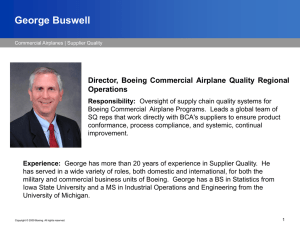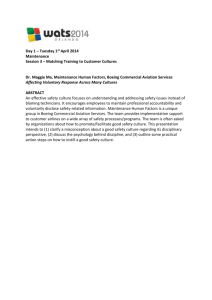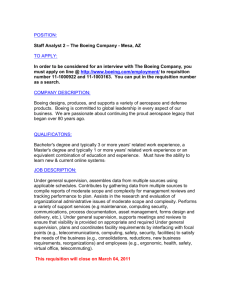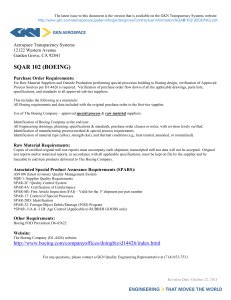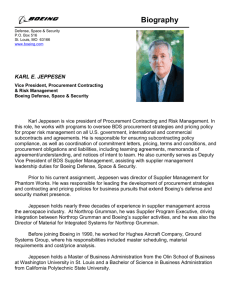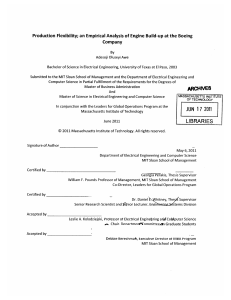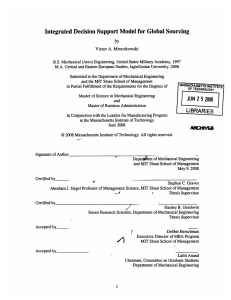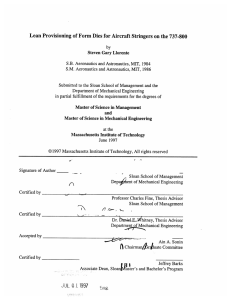Business Processes in Global Supply Chain Management (Part I)
advertisement
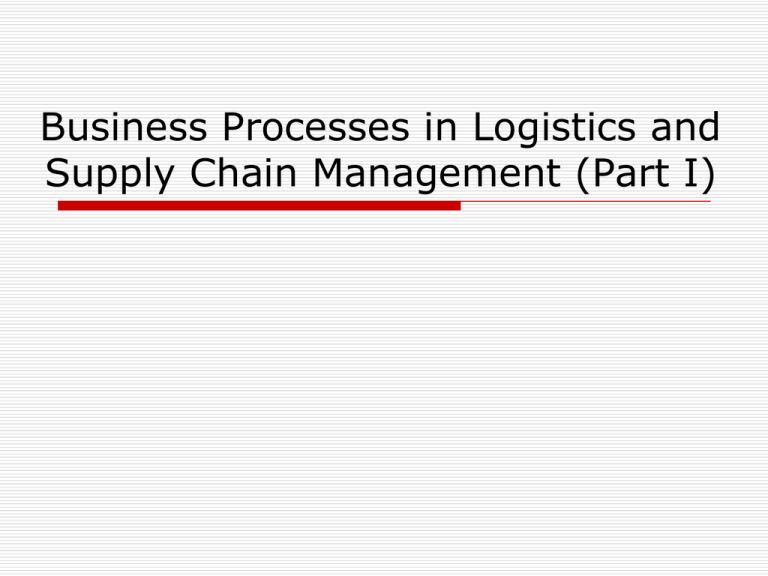
Business Processes in Logistics and Supply Chain Management (Part I) Customer Relationship Management Process To provide structures for how to develop and maintain relationships with customers To segment customers based on their value over time To increase customer loyalty by providing customized products and services Issues Associated with Customer Relationship Management Operational and analytical CRM Customers repositories B2C and B2B client data marts Campaign management Strategic and operational reporting Customer data analysis Business value of customer relationship management Sales Marketing Services Supplier Relationship Management Process To provide structures for how to develop and maintain relationships with suppliers To develop close relationships with a small set of key suppliers To develop traditional relationships with the others Issues Associated with Supplier Relationship Management Supplier Relationship Management Software SAP SRM Oracle SRM Business Value of Supplier Relationship Management Increase productivity and cash flow Improve operational efficiency and quality Increase supplier visibility Respond faster to change and opportunity Customer Service Management Process To administer the product and service agreements (PSAs) developed by customer teams To involve the development of triggers and signals to identify situations that may become problems before they affect the customer To develop the standardized response procedures to respond to recurring events To develop information systems to provide visibility to the triggers and signals that identify events requiring a response Issues Associated with Customer Service Management Customer Service Management Software customer record customer interaction business process Business Value of Customer Service Management Improve Your Customer's Experience Achieve a greater loyal customer base Improve profitability Accelerate organizational growth Demand Management Process To balance the customers’ requirements with the capabilities of the supply chain to match supply with demand proactively and execute the plan with minimal disruptions to provide functions of forecasting, synchronizing supply and demand, increasing flexibility, and reducing variability Issues Associated with Demand Management Process Demand Management Software Demand signal repository Demand collaboration Demand planning Demand shaping Pricing and simulation Business Value of Demand Management Manage customer demand Achieve greater forecast accuracies and customer service levels Case Study : Boeing’s Global Supply Chain System Boeing 787 Dreamliner shows a new manufacturing philosophy and approach with 135 structural and systems partner locations around the world. The biggest challenge is to ensuring all partners have access and visibility to the latest demand information from Boeing and Boeing has visibility to the supplier’s ability to meet the delivery schedule Boeing Strategy Adopt software-as-a-service delivery model and state-of-arts system to manage the complete order lifecycle and returns process across the multiple partner tiers, while also tracking planning schedules, consumption, and managing replenishment. Boeing Supply Chain Implementation Adopt Exostar system and existing network of connectivity into supply chain to go-live with solution in less than 90 days with following solutions: Multi-tier order management Reporting and analytics Community management and support Multi-Tier Demand/supply synchronization Partner Management Inventory Security and Identity Management How did technology help Boeing ? Early identification of potential demand/supply imbalances and their impacts on other partners or aspects of the supply chain Eliminate many of the manual activities associated with communicating new delivery schedules and order changes across multiple tiers Reporting and analysis for continued process improvement over the lifecycle of the program Move to exception based management of the end to end process across partners and partner tiers Eliminate latency in communicating demand /supply changes across multiple partner tiers The Outcome Improved on-time delivery to the end customer while minimizing logistics costs Ensure continuity of supply and minimize supply disruptions through the real-time synchronization of demand with available supply Improve cash flow for supply partners participating in partner managed inventory programs Discuss the following questions: What problems do Boeing address? How does global supply chain system help solve these problems? What issues and challenges do global supply chain strategy present? What can be done to address these issues? What are the business as well as the technology issues that should be addressed when Boeing implemented new global supply chain approach?
